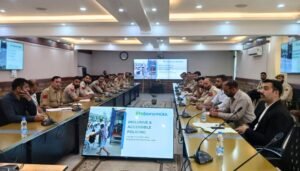
Pro bono legal assistance NGO iProbono won a Delhi high court appeal yesterday for a now six-year-old rape victim, with the high court slamming the magistrate and trial judge in her case for questioning her like an adult witness while recording her testimony.
The lower courts had declared her incompetent to testify based on her answers to certain questions, and the high court pointed out that the trial judge had acquitted the rape-accused based on a series of errors in arriving at the ruling.
Criminal advocates Siddharth Agarwal, Gautam Khazanchi and Utkarsh Saxena, assisted by iProbono India country director Swathi Sukumar, acted for the appellant who was three years of age at the time of the alleged rape more than two years ago. The victim has since been operated upon three times but continues to suffer because of the internal injuries she sustained in the initial rape.
The trial judge had dismissed the victim’s testimony as “untrustworthy” based on two reasons – that she had not stated anything about the incident of rape before the magistrate and that there was no explanation for how she had accompanied the accused to a secluded spot.
Holding both reasons as “fallacious” the high court ruled that:
- The victim hadn’t been given a chance to state anything about the rape before the magistrate who had wrongly concluded that she was an incompetent witness, and
- A three-year-old was not accountable for how she accompanied the accused to a secluded spot.
Justices Pradeep Nandrajog and Mukta Gupta noted the following points in her ruling:
The main plank of the case set up by the prosecution against the accused is the dock identification of accused by ‘N’ as the person who had raped her on October 06, 2012 […]
If after careful scrutiny of the testimony of child witness the court comes to the conclusion that there is impress of truth in it then there is no reason as to why the court should not accept the evidence of child witness. […]
The environment of a court room is unfamiliar and definitely intimidating to a child who is required to testify as a witness. The trauma faced by a child witness where a child witness is a victim as well is further aggravated. This important subject has received attention of the United Nations as well which has framed the ‘United Nations Guidelines on Justice in matters involving Child Victims and Witnesses of Crime 2005’. The UN guidelines prescribe that the children are particularly vulnerable and need special protection, assistance and support appropriate to their age, level of maturity and unique needs in order to prevent further hardship and trauma that may result from their participation in the criminal justice process. […]
The Magistrate ought to have first ascertained whether ‘N’ studied in a school before having questioned her i.e. ‘N’ about the school in which she is studying. The questions regarding the school put to ‘N’ by the Magistrate completely threw ‘N’ off-balance. Besides, what surprises us is that the learned Magistrate overlooked the fact that ‘N’ who was less than 3 years of age would not be obviously studying in any school. The age at which children go to a school is 4 years. […]
Thereafter the Magistrate threw a googly at ‘N’ by asking her whether she understands the meaning of word „truth? and what is the difference between truth and lie. How could a two and half year old child explain the meaning of word „truth? and state difference between truth and lie. It is very difficult, even for adults, to respond to abstract questions asking them to explain the conceptual difference between truth and lie. What to talk of a two and half year old child. […]
With this, the Magistrate closed the proceedings under Section 164 Cr.P.C. by concluding that ‘N’ is not competent to make a statement. […]
The approach adopted by the Magistrate before whom ‘N’ was produced for purposes of recording her statement under Section 164 Cr.P.C. to determine competency of ‘N’ to make a statement was most casual and cavalier.
iProbono had picked the case up when during its 29 August forum for child welfare NGOs, when the Haq Centre for Child Rights approached it with the case. iProbono was instructed to act for the victim last month and the appeal hearing was three weeks ago.
The accused had been arrested 15 days after the incident in 2012, when he was trying to kidnap another two-year-old girl, reported the Express.
This article is from Legally India












